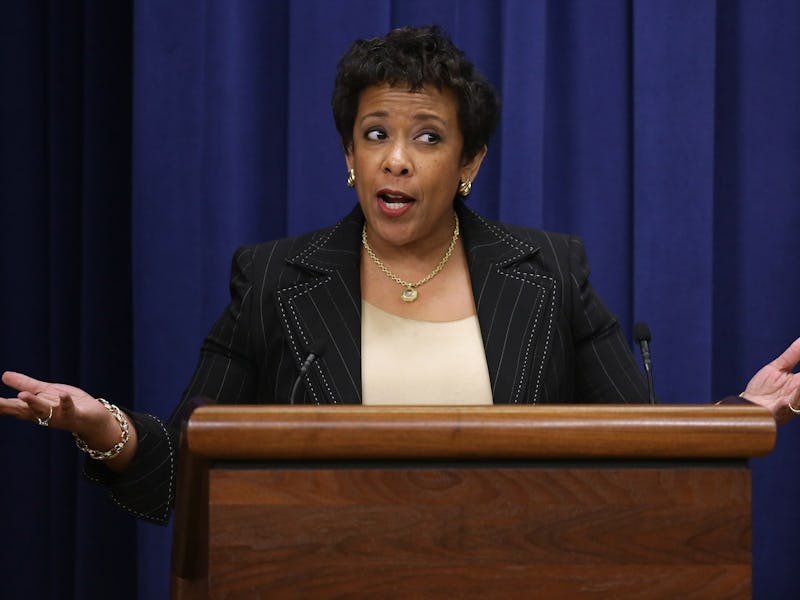Here's Why the Government's Battle With Apple Might Be Over
Someone gave the government an easier way in than duking it out in court.

After a month of fierce courtroom fighting, the federal government called time out in its battle against Apple over the security of an iPhone connected to the San Bernardino shootings.
Earlier this afternoon, government prosecutors called off Tuesday’s planned hearing with Apple, claiming that an “outside party” had come to them with a “possible method” for unlocking the iPhone in question. For Apple, the pressure is off for the time being, as it appears the government has found an easier way around Apple’s security than trying to bludgeon them into compliance with the All Writs Act.
The prosecution slipped the motion onto Magistrate Sheri Pym’s desk around 2:45 p.m., in the middle of a tech news cycle dominated by Apple’s product event.
Pym approved the motion shortly after, postponing any further legal proceedings until at least April 5th, when the government says it will deliver a progress report on whether or not the “outside party’s” method worked.
This may seem like a shaky truce, but some digital security experts are taking it as a major victory for Apple and encryption in general. The case had huge implications toward the future of digital security and encryption, and seemed like it was headed straight for Congress last month. But by moving to suspend the case, the government took a major step back, essentially retreating from its fight with Apple. Nate Cardozo, the Staff Attorney for the Electronic Frontier Foundation, called the decision a win immediately.
Apple’s lawyers weren’t so quick to celebrate, telling reporters on Tuesday evening that they still weren’t sure how the case would be resolved.
But today’s shift is still telling — before, the government had repeatedly insisted in its March 10th motion that they could not access the iPhone in question without Apple’s direct assistance.
Your services are no longer required, Apple.
If the prosecution is going back on that assertion now, they must have good reason to basically invalidate one of their key points, which means that the “outside party’s” method must have some legs. Apple’s attorney told reporters earlier today that Apple hoped the DoJ would share information about the “new method” of cracking Apple’s password protection security, especially as researchers recently found a new security glitch in Apple’s encryption. So for the time being, Apple and the public are in the same boat — waiting to see what happens next.